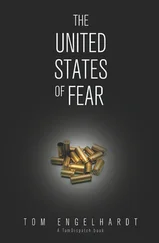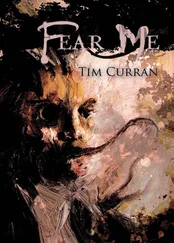When we had finished an invigorating run-through of “Mary Blaine,” I said, “Well, that could not be improved upon.” He frowned and played a small figure, something he must have thought he had played imperfectly, for he repeated it with slight variations of inflection, accent, intonation, at least twenty-five times before he called a provisional truce with the troublesome phrase. He might, I thought, have been more of a perfectionist than Mulligan.
We played for well over two hours without a rest; the sunlight had stolen across my parlor floor without my noticing. We took an intermission, then, and sat drinking the last of the lemonade.
“Well,” I said, “I spoke with my partner, and I think we will go ahead with things.”
He slapped his knee in triumph.
“But there are some wrinkles.”
“What wrinkles?”
“I determined that it might not be best to tell him, or the others, straight off that you are a Negro.”
He nodded, waited for me to go on. Then he asked, “How did you plan to hide that?”
“Yes,” I said. I felt as if I were about to leap from a tall perch into a very small pool of water. Nothing for it but to jump. “I told him that you’re a Mexican.”
He looked at me as if I were joking.
“I have heard you speak Spanish, on the street. .”
“But. .” he began, then he stopped, squinted at me. “I wasn’t speaking real Spanish.”
“I know that. Listen,” I said, “this is merely to get your foot in the door. I don’t want to start by encountering some resistance that we could easily avoid.”
We went back and forth about it and slowly teased out the rest of the plan. In addition to presenting him to the others as a Mexican — named “Juan García”—we determined that as an extra element of disguise he would meet them already blacked up. We encountered only one major impasse in the original plan: he did not like the idea of stepping onstage for one song and then leaving, as Mulligan and I had discussed. I told him that one song was the limit of what Mulligan would agree to. After some argument, he suggested that he be onstage from the beginning of the second half, seated until “noticed” and called upon to prove his prowess. As a refinement, we established that he would be mute the entire time. In tribute to his nonverbal eloquence we would call him Demosthenes Jones.
Was this entire idea brazen, and perhaps unhinged? Yes. Yes it was. But suddenly the predictable continuum of the everyday was replaced by a set of effervescent possibilities, and that, I suppose, was what I had been addicted to my entire life. The process was intoxicating, as music was. It was all just plausible enough to seem workable and practical. And what, I asked myself, was the worst that could happen?
Letting Rose in on Henry’s identity was unavoidable; he needed to be fitted for his outfit, so there was no way around it. Or perhaps it was in fact avoidable, yet I needed to share the secret of my plan with someone, and the idea of a complicity with Rose was too attractive to deny. Of course it was a risk, yet I had a strong intuitive notion that it would be all right, and that she could be trusted with the secret. By this time, Rose and I had become. . not friends, exactly, but we had a certain comfort with each other that comes from understanding that neither person’s boundaries would be tested further. Still, I thought to check with her first on the question.
“Rose,” I said, “we are going to need an outfit for a guest performer, but his identity needs to be kept secret. Even from the fellows.”
“All right, James,” she said, stitching carefully.
“Listen, Rose,” I said. “I need to be certain that you will keep the secret.”
She looked up at me for a moment as if to see whether I were joking. “Do you imagine I can’t keep a secret?”
“Well. .” I began.
“I would win medals at it, if they awarded them,” she said. Then she added, “You would be my only serious competition.”
“Then I’ll ask you this: Do you have antipathies toward Chinamen, Negroes, Mexicans, or other foreigners?”
Now she looked hard at me. “I take people as I find them, James.” Her look of reproach made me confident that I could import Henry without causing uneasiness in her.
Two days later, in the late morning, Henry met me at the theater so that Rose could take his measurements and get to work making a costume. She was wearing a simple frock, and she had on a washwoman’s bandanna, tied around her head. But this touch had the paradoxical effect of making her seem even more elegant than usual.
“I bought some embossed satin for the costume,” she said. “The receipt’s on your desk. I’m going to make a turban with the leftovers. Maybe you’ll let me play an Arab princess.”
“I’ll conduct the audition privately,” I said, flirting back with her.
“You’d like that, wouldn’t you?” she said.
“Well,” I said, “why don’t we get Henry fitted?”
Henry was standing back in the shadows; I turned and threw him a quizzical look. He stepped forward, and I said, “This is Henry. But we are going to do a little routine for the boys, so think of him, for now, as Juan.”
He stood there, wordless, with his hands in his trouser pockets. Rose was frowning. I worried that I might have misjudged Rose’s willingness to accept a Negro, but the worry passed when she spoke.
“Aren’t you hot in that flannel?” she said.
“No,” he said. “I’m fine. It’s chilly in here.”
“Is it?” she said.
There ensued an awkward silence, which I broke by suggesting that we get Henry measured, and we proceeded to Rose’s workroom.
Once there, Henry submitted to the usual measurements. Rose showed me the bolt of glossy light-green satin, embossed with shiny stripes, which I agreed would be perfect.
“Well,” she said, “what kind of routine are you preparing?”
I explained about the Spanish masquerade, and she laughed.
“Do you speak Spanish?” she asked Henry.
“Not really,” he said. “Just a type of joke Spanish.”
“He sounds absolutely like a Mexican,” I said.
“Let me hear!”
Henry let out a sentence, something on the order of “ Dos manicómios de jueves éstaban ricos con la segura . .” with a kind of insouciant authority that would have been quite convincing to anyone who did not know Spanish.
“What did he say?” Rose asked, turning to me as if Henry would not understand the question.
“He said, ‘ The sky turns red when the turnips are in the basement .’”
Henry laughed at this, and so did Rose.
“Close enough?” I said.
“Close enough,” he said.
We discussed a few more details of the costume, and Rose was all business. At the end of our discussion she wished us good luck with our routine and said the costume would be ready in a few days, as soon as she got the Uncle Tom suit altered for Powell. This was fine, as we were just shy of two weeks away from Henry’s debut.
Henry and I quit the theater. I had errands to run, and we walked a ways together along Arch Street. Henry asked me for Rose’s name, and I told him.
“Didn’t I introduce you?” I asked.
He told me I hadn’t, and he added that he had never seen a woman with hair that short before.
“Yes,” I said. “She’s unlike anyone else.”
“Is she your sweetheart?”
He wore a slight smile as he asked this. I did not know whether to laugh out loud or to cuff him. It was not the kind of question one asked. And it touched a sore spot in me, of course.
“No,” I said, rather curtly. “She is kept by one of the troupe. Eagan.”
“What do you mean, ‘kept’?”
Читать дальше










